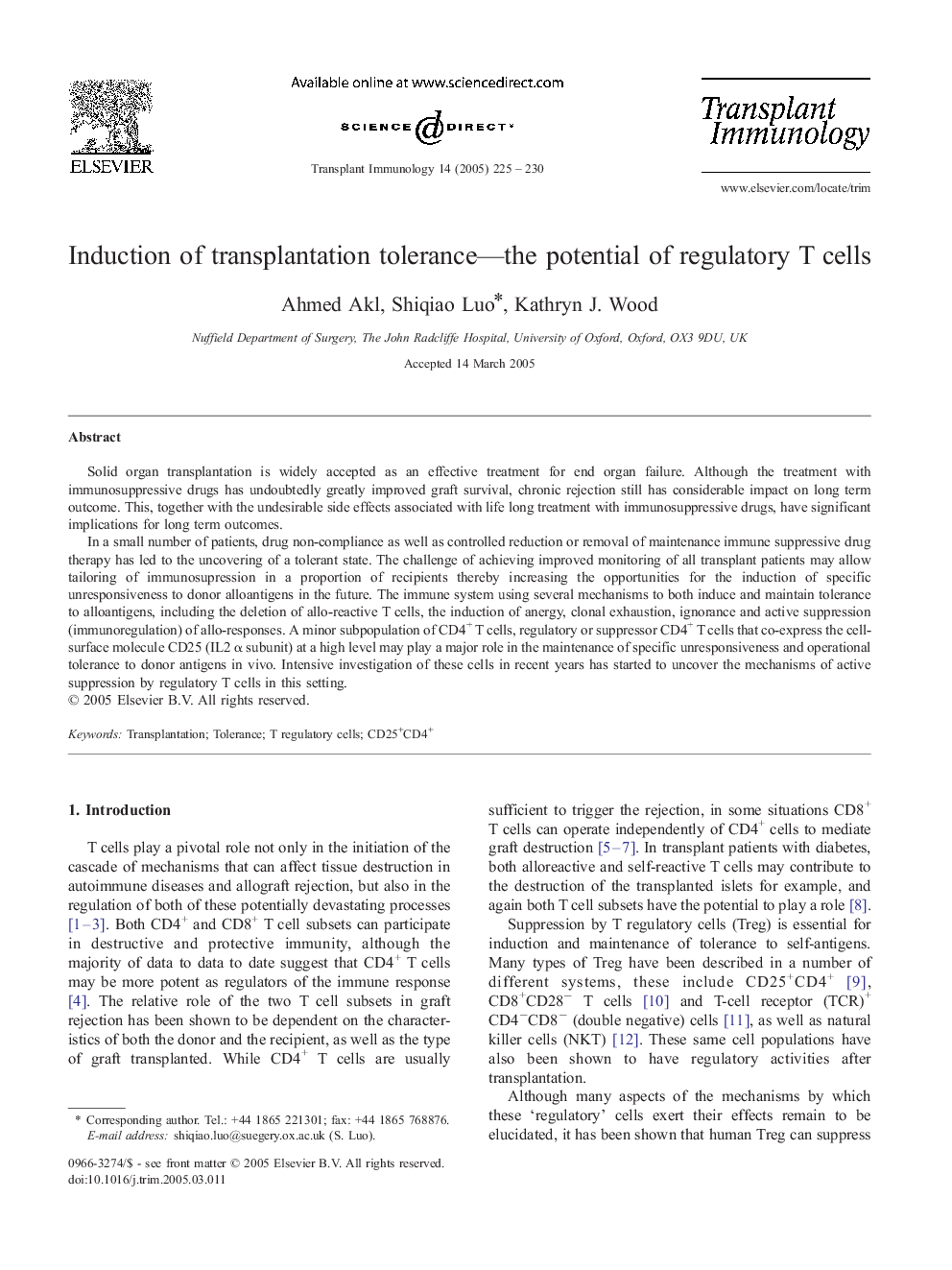| Article ID | Journal | Published Year | Pages | File Type |
|---|---|---|---|---|
| 9273805 | Transplant Immunology | 2005 | 6 Pages |
Abstract
In a small number of patients, drug non-compliance as well as controlled reduction or removal of maintenance immune suppressive drug therapy has led to the uncovering of a tolerant state. The challenge of achieving improved monitoring of all transplant patients may allow tailoring of immunosupression in a proportion of recipients thereby increasing the opportunities for the induction of specific unresponsiveness to donor alloantigens in the future. The immune system using several mechanisms to both induce and maintain tolerance to alloantigens, including the deletion of allo-reactive T cells, the induction of anergy, clonal exhaustion, ignorance and active suppression (immunoregulation) of allo-responses. A minor subpopulation of CD4+ T cells, regulatory or suppressor CD4+ T cells that co-express the cell-surface molecule CD25 (IL2 α subunit) at a high level may play a major role in the maintenance of specific unresponsiveness and operational tolerance to donor antigens in vivo. Intensive investigation of these cells in recent years has started to uncover the mechanisms of active suppression by regulatory T cells in this setting.
Related Topics
Life Sciences
Immunology and Microbiology
Immunology
Authors
Ahmed Akl, Shiqiao Luo, Kathryn J. Wood,
